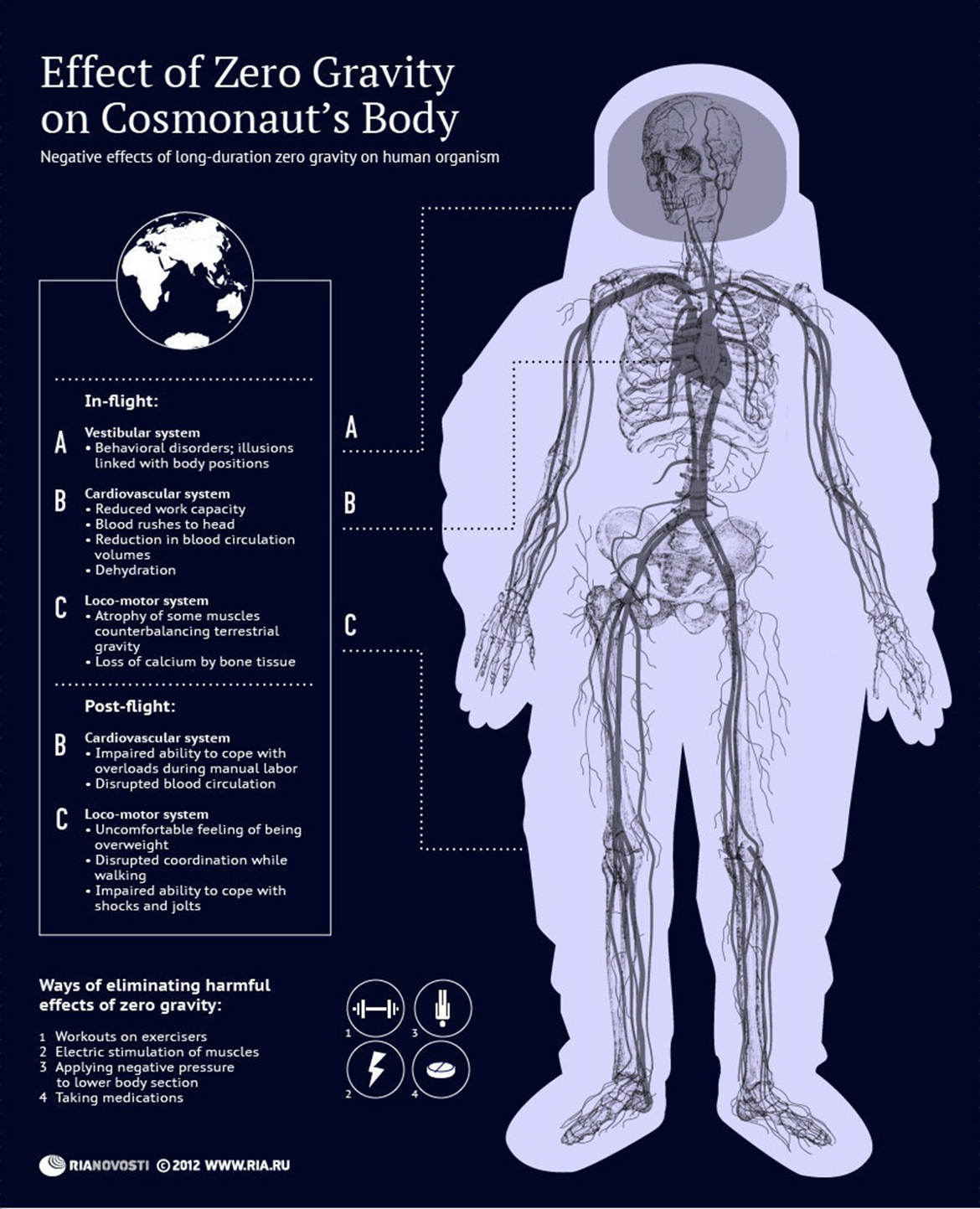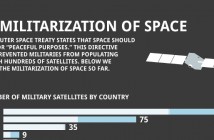Some people think that space Travel has been just a stroll in the playground. If you believe that being a cosmonaut is glamorous and fun, better think again. There are many sides’ effects associates of being a cosmonaut.
Working and living in zero gravity place plays chaos on various portions of the body, which include vestibular or balance, skeletal and muscular systems. Above all, NASA has recognized 442 medical cases which can require urgent attention during this long term space mission. This affects your decision of becoming a cosmonaut.
Side Effects of Zero Gravity
Your brain takes the increase of body fluid in your cephalic part as a raise in total amount of water. In responses, increase in the volume of liquid activates your excretory mechanisms; that result to losing your calcium and demineralization of bone. The amount of blood might decrease by 10 percent that adds to the malfunctioning of your cardiovascular system. Crew members should avoid dehydration.
Changes in Cardiovascular Systems
Water
The increase of water in your thoracic part leads primarily to augment in cardiac issues and left ventricular volume. When the body finds a new stability or balance, water is excreted; your left ventricle get smaller and there is a decrease in cardiac output. Upon go back to gravity, the fluid is returned back in to the lower extremity and your cardiac output go under to subnormal stages. It might take many weeks to enhance the amount of fluid, cardiac size, peripheral resistance as well as cardiac outback to go back to normal.
Blood
Blood samples that takes prior and upon flights have shown a loss of approximately .5 liters of blood. Experts are examining the probability that zero gravity results in a change in the function of splenic which lead in premature destruction of blood cells.
Muscles
Muscles don’t need to do as more to move in zero gravity. When cosmonauts don’t work harder to fight this issue, they will encounter serious muscle loss. It is precisely similar as lying in the best for so many months. Once you attempted to rise and move in forwards, you will notice that your muscle were incredibly weak.
Bone Density
This is also applicable to your bones. The bone weakens, losing calcium as well as power in zero gravity. Thus results to osteoporosis. Cosmonauts risk losing two percent of the bone mass for each month they spent in a zero gravity.
To avoid bone loss and reduce muscle loss, space crew members need to work out for at least two hours or more daily. It is only a matter of doing some pushups, sit ups, or working on a treadmill, odd looking machines have been made to make working out efficient in this place.
The issues doesn’t end if they go back home. As a matter of fact, many cosmonauts have further trouble readapting to the gravity of Earth that adapting to orbit microgravity. Their bones and muscles have weakened, which make them hard to walk. Their heart need to recondition in order to pump harder so as to overcome the gravity. Space travel indeed is a adventure, however not an easy job.




